Understanding Grief

What is Grief?
According to the Oxford Dictionary, grief is: “A feeling of great sadness, especially when someone dies.” Grief is most often associated with sadness – in reality, it’s probably easier to say that grief is a bundle of different emotions you might experience when someone dies, which can include other powerful feelings as well as sadness. It’s also important to remember that grief can be experienced after all kinds of different losses – such as moving home or the end of a relationship – while bereavement specifically deals with feelings of loss associated with the death of someone important to us.
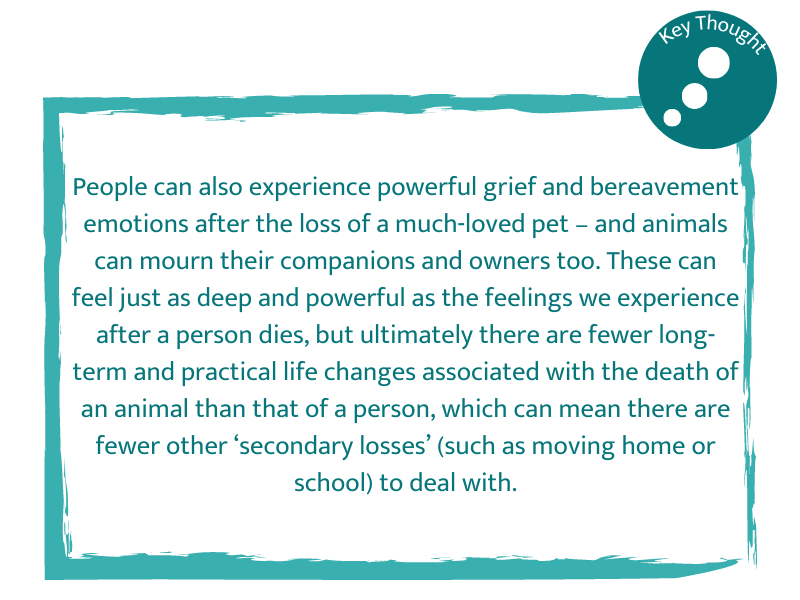
What does grief feel like?
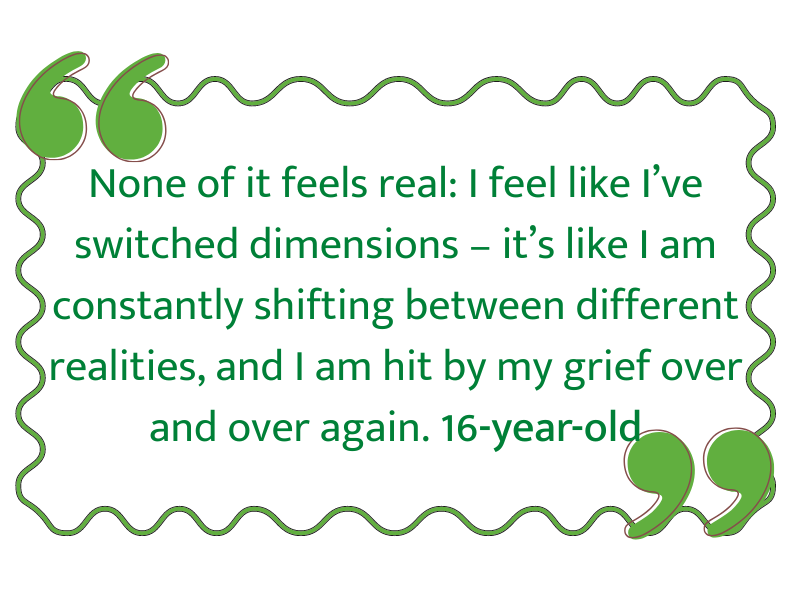
Grief can include a lot of other emotions in addition to sadness. After someone important to you dies (or if you know they are dying) you might experience some, all, or none of the feelings and sensations below. That’s because grief is unique to you, your life, and the relationship you had with that person. The important thing to remember is that there is no right or wrong way to feel after someone dies.
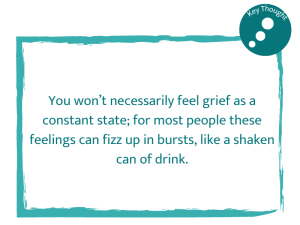
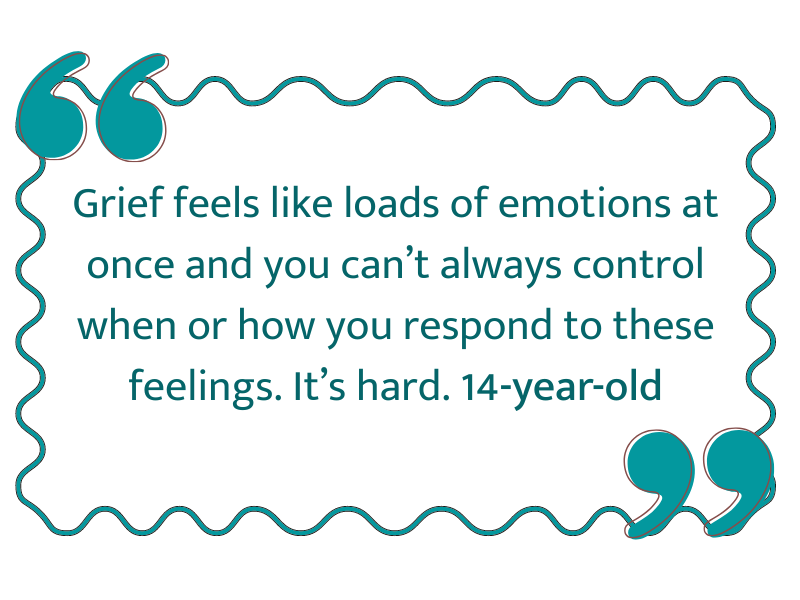
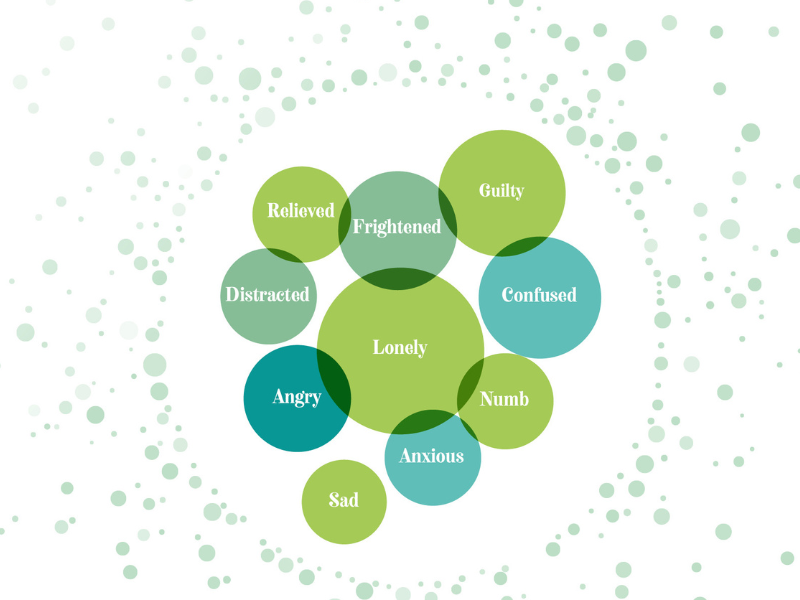
How long will it last?
In the same way that your feelings are unique to you, so is the timescale of your grief. Lots of people say that grief never goes away, but that it looks and feels different as time goes on. Have a look at the ‘what the experts say about grief’ section for more information on how grief can change over time. Although you may always feel grief in some way, in our experience, young people tell us that they do feel better as time goes on.
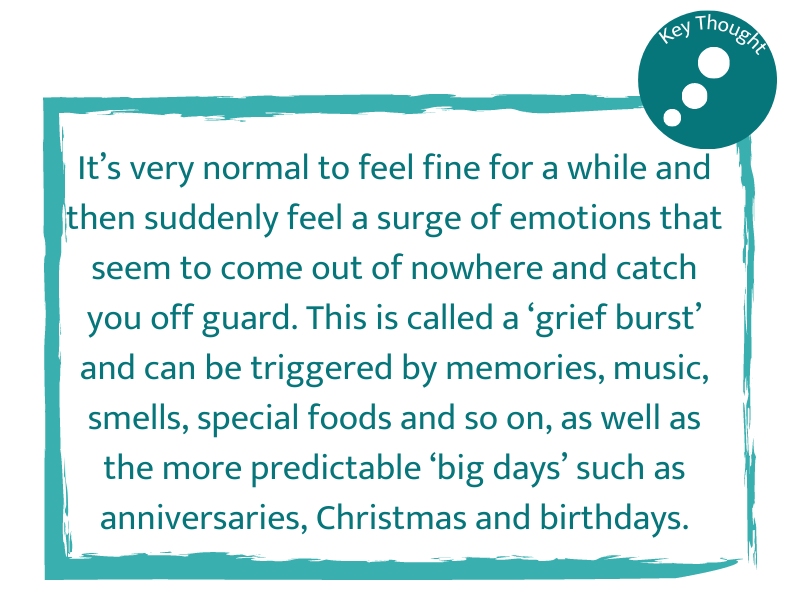
Am i normal?
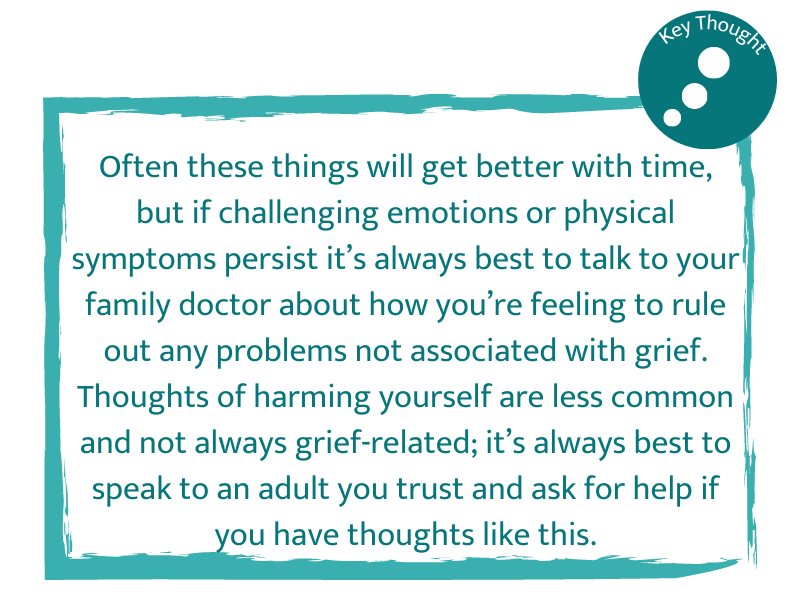
As well as a rollercoaster of emotions, you might find certain things harder than you did before. Here are some of the things young people tell us they have struggled with:
• problems getting to sleep/staying asleep
• struggling to concentrate or focus
• finding it difficult to remember things
• not feeling hungry
• getting angry very quickly
• getting upset very quickly
• worrying about things
• finding it difficult leaving the people you love
• worrying about bad things happening to people
you care about
• tummy upsets and/or headaches
It is common to find any of these things difficult after someone you love dies. They might happen straight away, months later, or not at all. If you feel you are struggling to manage, it is important to ask for help. Think about emotions as waves on a shore: they wash over us and then they leave. This process repeats throughout our life and with all different emotions – both comfortable and uncomfortable ones.
